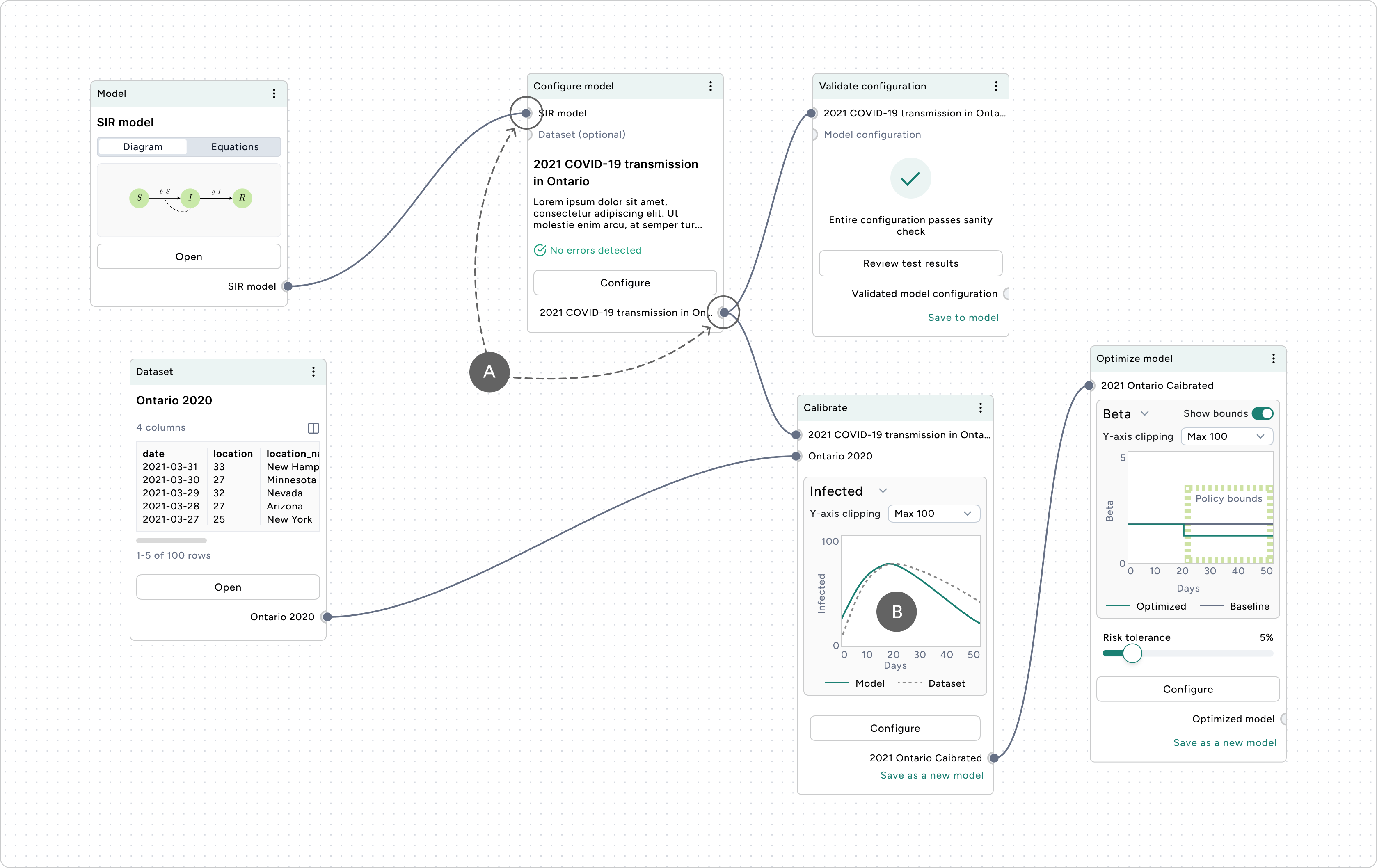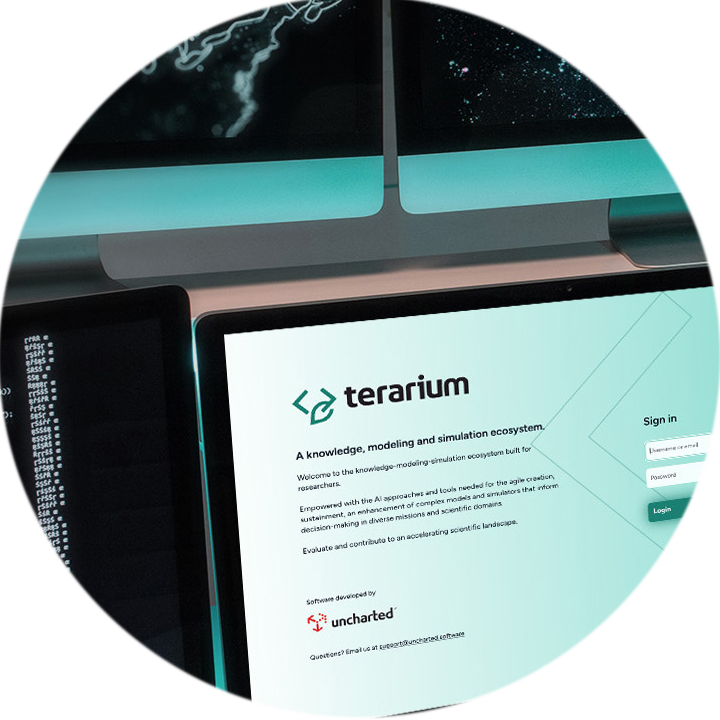In a crisis like a pandemic, time stands still. Policymakers rush to chart a way out, trying to establish some consensus truth about the situation and the best path forward. The “open science” movement rallies to offer predictive models, but the models are seemingly limitless in number, of uncertain provenance and questionable suitability, and they don’t agree. Understanding and extending complex model code requires deep expertise and takes weeks at best, especially when there’s little transparency into the original intent and assumptions. To democratize modeling for the shared benefit of society, Uncharted is developing Terarium, an AI-powered platform for everyone from grad students to decision makers. Terarium breaks down barriers to accelerated scientific advancement by helping users reproduce, combine, and extend existing knowledge from disparate sources and share modeling workflows and outcomes in a collaborative ecosystem.
As we discussed at ACM CHI this year, Terarium is designed to address the challenges of accessibility, flexibility, and transparency within collaborative modeling workflows. Given a scientific paper, Terarium’s integrated AI can automatically extract and “rehydrate” a model from equations. Users can visually chain models together with other papers, datasets, and operations (transformation, configuration, calibration, etc.) to build on and modify existing work. The resulting visual workflow serves as a transparent, reproducible record of every step and branch in the research from knowledge extraction to simulation.

Towards Accessible, Flexible and Collaborative Scientific Modeling with Terarium
by Pascale Proulx, Jamie Waese, Meng-Wei Chang, Lai Chung Liu, Holland Vasquez, Neil Graham, David Gauldie, Yohann Paris, Derek Vince, Charles Coleman, Kevin Birk, Jaehwan Ryu, Cole Blanchard, Edwin Lai, Tom Szendrey, Julian Whiting, Shawn Yama, David Schroh, David Jonker, Brandon Rose, Matthew Printz, and Five Grant
Each node in the chain is a computational notebook focused on one aspect of the larger modeling and simulation workflow. For a novice user, a code notebook may be overwhelming; Terarium will construct a step-by-step form with suggested settings. For an expert user, an LLM-powered assistant interprets user prompts and generates executable code in the notebook. Further LLM integration can enrich project resources by extracting concepts from relevant papers and datasets.
By opening scientific modeling to the broader community, Terarium aims to facilitate greater learning, transparency, and collaboration. For more information on potential applications for Terarium, check out our conference paper or reach out to us!
Related posts:
